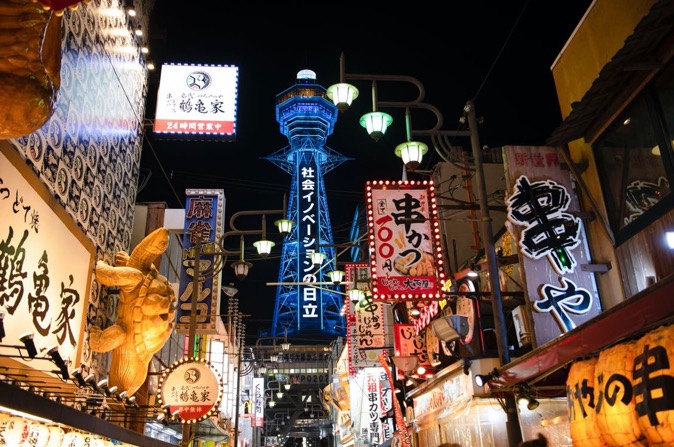Feb 24 (newsonjapan.com) - Travel virtually anywhere in Japan and it won’t be long before you hear the distinctive cacophony of a pachinko parlour ringing out.
The enduring appeal of pachinko
Travel virtually anywhere in Japan and it won’t be long before you hear the distinctive cacophony of a pachinko parlour ringing out.
It would be fair to say that the mechanical arcade-style game, which has failed to make anything like the same impression anywhere else in the world, is a true national obsession.
Its players are generally of the older generation, so there are fears in some quarters that, as they start to die out, so will pachinko. But as we’ll see, efforts are already being made to encourage a younger type of player to secure the game’s future.
The origins of the game
The very first pachinko parlour opened in Nagoya back in 1930 and very quickly the popularity of the game began to spread. The original game was based on a French toy called bagatelle in which a spring-loaded hammer fired metal ball-bearings onto a wooden board. On the board were a number of catchers formed by pins in a cup shape. The objective was to land in one of these catchers and score a certain number of points.
Today’s pachinko games are still based on this basic principle but are far more sophisticated and have many features in common with modern slots or video games. Players still fire metal balls into the board in the hope that they will land in a catcher, but they are also entertained by videos on the screen and crazy soundtracks that react noisily when they’re successful.
Many players also approach playing as a science rather than a skill and choose which machines to favour according to the readouts above ever machine that show how successful previous players have been on it. Often there will even be a queue of people lining up to play a particularly popular machine.
Big money

The game that generates 4% of Japan’s GDP
To get an idea of just how very popular the game continues to be, one just has to look at some of the stats. Currently, there are around 10,000 pachinko parlours in the country, and it’s estimated that there are almost 8 million regular players of the game, that’s over 6% of the population.
Admittedly, this is a long way from its popularity during the game’s heyday in the early 1950s when there were almost 390,000 parlours, averaging out at 3 per square kilometer.
Even so, it generates revenue of around $200 billion a year, thirty times that of both Las Vegas and Macau combined, and the equivalent to 4% of Japan’s total GDP.
What is most surprising about the continued popularity and success of the game is that it is technically illegal in Japan, and yet it continues to thrive. This is because most forms of gambling and games of chance were declared as being against the law in the country in 1907. A concession that was subsequently made was that players could win prizes from pachinko, but not money.
You’ll see an array of goods in every parlour ranging from electronics devices to handbags that can be won. Players can also exchange the balls they have managed to land in the catchers for a special coin. They then need to find the booth nearby, and which the parlour is not allowed to advertise, where they can exchange their coin or the prize they’ve chosen for cash.
Why not follow the UK model?

The UK model of gambling laws are some of the most globally logical
This seems like a very convoluted method of claiming a prize, especially when compared with countries which have a rather more enlightened approach to gambling.
The UK is often held up as an exemplar of good practice where the close regulation of the industry has seen a huge number of businesses thrive. This has led to an overall increase in the quality of the games and sites on offer. The market in the UK is very competitive, so to have any chance of success, operators must have an outstanding product to offer, made up of brilliant customer service and an impressive selection of games, as is the case with this well-respected online casino.
It’s been suggested that if Japan were to take a similar approach to UK that it would be very well received by much of the population.
There are signs that greater liberalisation may be on the way. For example, in 2018 a law was passed that would allow three “bricks and mortar” casinos to be built in Japan with the main aim to create an extra attraction for tourists. So, it’s certainly possible that more reforms may be on the way.
Something that may have hampered this in the past was the involvement in organised crime in pachinko, as well as the fact that many parlours were run by North Korean immigrants who sent a proportion of their money home to a country that Japan has always regarded as a threat. But the crime element has been eliminated and tolerance towards immigrants seems to have increased.
Any loosening of the laws would certainly provide a boost to the pachinko industry which, as already mentioned, is keen to expand and appeal to more players. It has already made some moves to attract younger players by incorporating some slots elements into many of the games as well as reducing the cost of playing.
It also remains to be seen whether the smoking ban that came into force in 2020 will have any effect. It will certainly make the notoriously smoky parlours more pleasant places to be, but will it deter the regulars from coming?
These are all questions that will be answered in the fullness of time – but pachinko is so intricately woven into the culture of the country that few believe that it will ever disappear.















